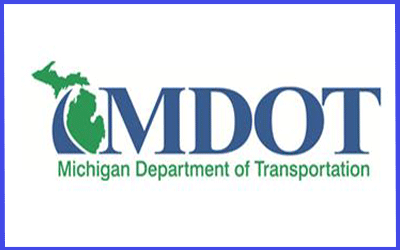
Is it really cheaper to charge a battery than to fill up a gas tank?
|
|

|
|

|
|

FOR IMMEDIATE RELEASE August 10, 2023 I-75 project update: Resurfacing and repairs continue; eastbound Holly Road lane closure over I-75 starts Aug. 14 CLARKSTON, Mich. – The Michigan Department of Transportation (MDOT) I-75 project between M-15 (Ortonville Road) and the Oakland/Genesee county line continues with resurfacing and repairing of the roadway along with bridge repairs and other improvements. Beginning 10 a.m. Monday, Aug. 14, eastbound Holly Road will have one lane open over I-75 for bridge repairs, with a temporary traffic signal. Current closures:
Updates:
MDOT is investing approximately $160 million to resurface and repair I-75 from M-15 (Ortonville Road) to the Oakland/Genesee county line. This project includes resurfacing I-75, repairing 11 bridges, drainage improvements, culvert replacements, signs, and guardrail. Various work will be performed in different locations with different schedules throughout the 15 miles over four years. Funding for this project is made possible by Gov. Gretchen Whitmer’s Rebuilding Michigan program to rebuild the state highways and bridges that are critical to the state’s economy and carry the most traffic. The investment strategy is aimed at fixes that result in longer useful lives and improve the condition of the state’s infrastructure. Based on economic modeling, this investment is expected to directly and indirectly support 1,936 jobs. |

MDOT marks 10 years of Transportation Diversity Recruitment Program Fast facts: LANSING, Mich. - The Michigan Department of Transportation (MDOT) recently celebrated the 10th season of its successful Transportation Diversity Recruitment Program (TDRP) with a program showcase. The goal of the TDRP is to recruit and introduce underrepresented groups of students to transportation-specific career opportunities. The program offers Historically Black College and University (HBCU) students hands-on experience in civil engineering and other opportunities toward a career in transportation. State Transportation Director Bradley C. Wieferich reflected on the first decade of the program. “The TDRP, I think, is just one example of how we’re building diversity, equity and inclusion into the fabric of what we do. It’s opening the door, where in the past (these students) might not have ever had these opportunities maybe that I had when I was coming up. We need to make sure that we’re expanding the pipeline as much as we can across the industry and the TDRP is an excellent way of making sure that we’re tapping all the resources we need.” “I’m very happy that MDOT came up with the initiative to recruit students like me,” said Peter Oyewale, an Alabama A&M University student and TDRP intern in MDOT’s Southwest Region. “I’m an international student from Nigeria and when I came to the U.S., I knew it was going to be hard for me to get an internship because I didn’t have a U.S. experience.” Zaya Wright, a second-year TDRP intern from Southern University and A&M College, commented on her experience with the program. “An opportunity like this doesn’t come as often as people would think. I think this program means a lot, especially to students coming from HBCUs who really don’t have that representation. It has led me to meeting some amazing people and creating some amazing job opportunities for myself.” The TDRP runs from May to August each year. Requirements include being an engineering undergraduate student enrolled at an HBCU with at least a 2.0 GPA. Go to the program website at www.Michigan.gov/MI-TDRP for more information, or contact TDRP Program Coordinator James Jackson at 517-206-9369 or JacksonJ15@Michigan.gov. |

FOR IMMEDIATE RELEASE July 27, 2023 I-75 closing between US-24 and Saginaw Road/Dixie Highway for bridge demolition near the Oakland/Genesee county line VILLAGE OF CLARKSTON, Mich. – Beginning 9 p.m. Friday, Aug. 4, I-75 will be closed in each direction between US-24 and Saginaw Road for the demolition of the Rattalee Lake Road bridge over I-75. All traffic will be detoured onto Dixie Highway. Work is expected to be completed by 5 a.m. Monday, Aug. 7. Detours: Northbound I-75 traffic will take US-24 (Dixie Highway) Exit 93 in the village of Clarkston and continue north to I-75 in Genesee County. Southbound I-75 traffic will be detoured in Grand Blanc Township and exit at Dixie Highway/Saginaw Road Exit 106, continuing on Dixie Highway to I-75 in Oakland County. The Michigan Department of Transportation is investing approximately $160 million to resurface and repair I-75 from M-15 (Ortonville Road) to the Oakland/Genesee county line. This project includes resurfacing I-75, repairing 11 bridges, drainage improvements, culvert replacements, signs, and guardrail. Various work will be performed in different locations with different schedules throughout the 15 miles over four years, with overall project completion expected in 2026. Funding for this project is made possible by Gov. Gretchen Whitmer’s Rebuilding Michigan program to rebuild the state highways and bridges that are critical to the state’s economy and carry the most traffic. The investment strategy is aimed at fixes that result in longer useful lives and improve the condition of the state’s infrastructure. Based on economic modeling, this investment is expected to directly and indirectly support 1,936 jobs. |

FOR IMMEDIATE RELEASE July 14, 2023 MDOT carpool lot in Auburn Hills in Oakland County closing July 30 AUBURN HILLS, Mich. – The Michigan Department of Transportation (MDOT) carpool parking lot at 178 Lake Village Blvd. in Auburn Hills is closing permanently on Sunday, July 30. County: Oakland Location: 178 Lake Village Blvd. Auburn Hills, MI 48326 Closest city: Auburn Hills Closure date: Sunday, July 30, 2023 11 p.m. Alternative MDOT carpool lots: Auburn Hills: Meijer Auburn Hills, MI 48326 Clarkston: Independence Twp, MI 48348 Details: MDOT will be closing the Auburn Hills – West carpool parking lot due to low use. Any vehicle remaining in this lot after 11 p.m. Sunday, July 30, will be towed. Please use one of the alternative carpool parking lots listed above.
|